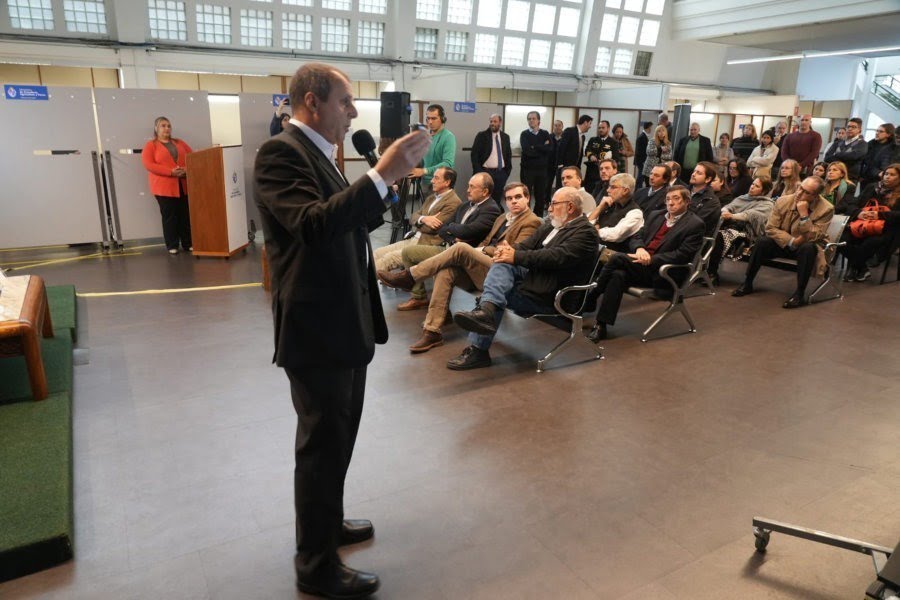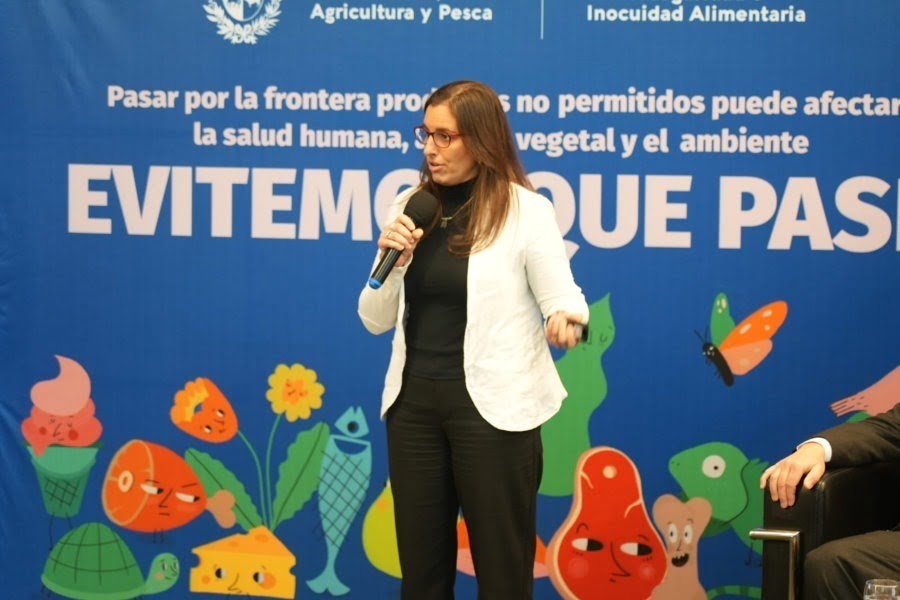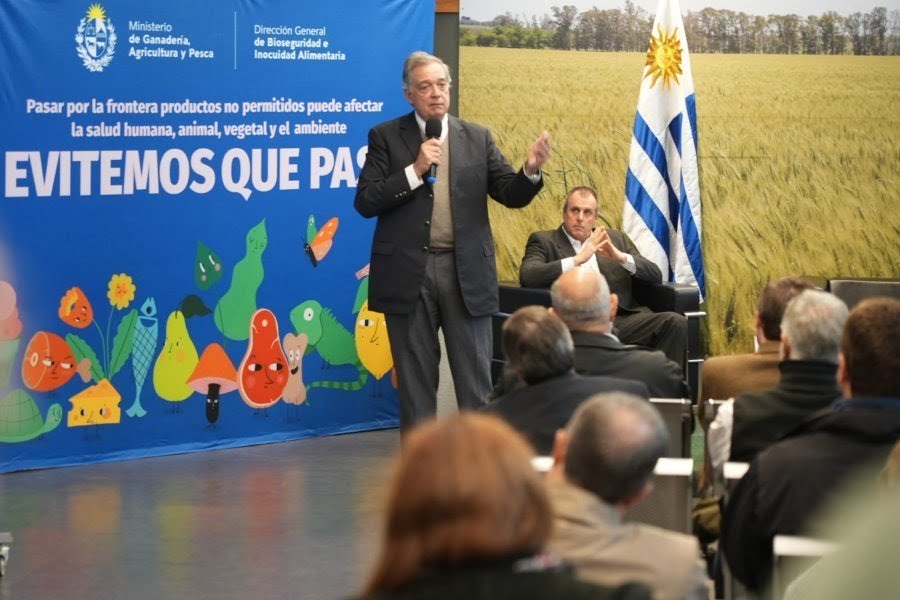As stated by Portal AgroalimentarioOn Wednesday, June 21, the General Directorate of Biosecurity and Food Safety (DIGEBIA) of the Ministry of Livestock, Agriculture and Fisheries launched the Communication Campaign "Evitemos Que Pase" ("Let's Prevent It From Happening"). This initiative, supported by the Inter-American Development Bank (IDB), calls on the population to become aware of the risks of introducing into the country products of animal or plant origin that are not permitted.
Increasing controls to prevent major ailments
At the beginning of the lectures, in the framework of the press conference convened by the Ministry of Livestock, Agriculture and Fisheries (MGAP), Andres Salvomanager of the Sanitary Barriers Area was the first to speak about the importance of the campaign. In this regard, he said that "The entry of a disease through an animal, plant or product can affect the health of the population, the environment, national agricultural production and compromise our exports, generating economic and social damages of great magnitude"..

During the course of this year, controls at more than 40 points of entry into the country have seized and destroyed more than 74,000 kilograms of veterinary, meat, dairy and vegetable products.
The DIGEBIA and the MGAP Among other things, they seek to computerize and automate risk management at the border, generate synergies with different government agencies and conduct communication campaigns for Uruguayans and foreigners entering the country.
Animal and vegetable products that cannot enter the country
In the official animated video of the campaign "Let's prevent it from happening."The products and elements of animal or vegetable origin that are not authorized for entry into the national territory are specified.
Based on the order of mention in the musical theme of the campaign, the products not allowed for entry are as follows:
- Beef, veal, swine and sheep
- Birds and fish
- Sausages
- Fruits, flowers, plants, mushrooms and leaves
- Woods, honeys, roots and pollen
- Exotic or domestic animals
- Insects, bees and mites
- Agrochemicals and veterinary products
- Dairy: cheese, ice cream, milk, butter and yogurts
- Hides, skins, antlers, hooves, bones and feathers
- Eggs
Generate greater awareness and a change in mentality
The director of DIGEBIA, Virginia GuardiaHe emphasized the importance of raising awareness among citizens and foreigners on the preservation of the country's sanitary status.

Actions are being coordinated with organizations that share the vision of preserving the country's animal and plant health, as well as with those that promote the education of young people.
Guardia added: "controls can be reinforced, professionalized or tightened, but they will never be sufficient if we as a society do not understand the importance of preserving animal and plant health"..
The Minister of Livestock, Agriculture and Fisheries, Fernando Mattos, closed the conference by reaffirming the importance of raising awareness and changing the mentality regarding the handling of risk products.

The hierarch specified that, "A recent example is the U-20 World Cup, where 70 thousand Uruguayans traveled to Argentina, also attracted by the prices.. In this context, Fernando Mattos added: "then an innocent act such as receiving a gift from a relative, who we are visiting abroad whether it is a plant, a handicraft, or a gift from a friend or relative. (...), can pose a risk and awareness on the part of our fellow citizens, but also on the part of the tourist, is essential to prevent greater evils"..

